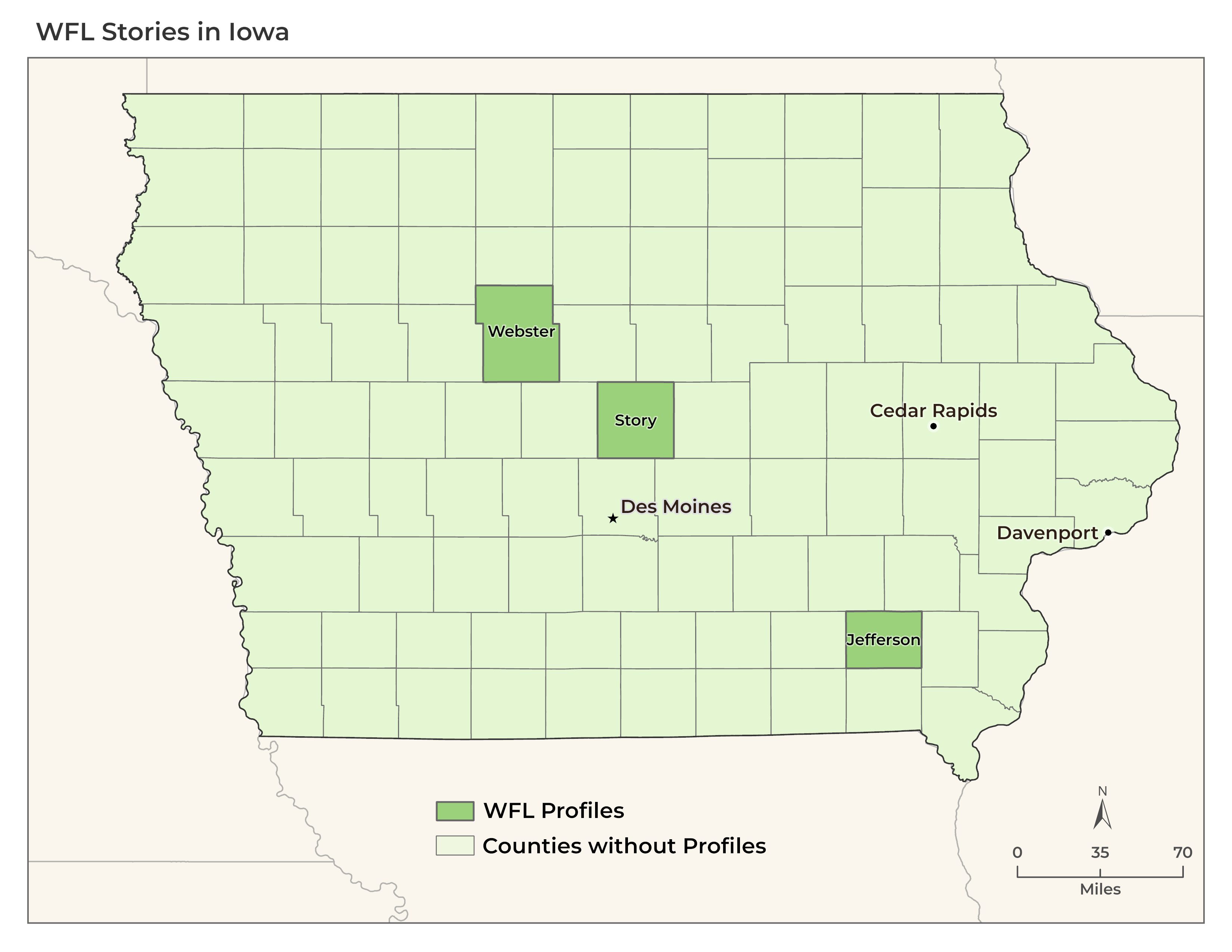Profiles of Women in Iowa Agriculture
The following stories of Iowa women in agriculture highlight the ways that Iowa farmers and landowners are navigating weather and climate change related challenges and what they are doing to cope, stay inspired, and support each other. They are snapshots of stories happening throughout the state.

It’s a few small squares or rectangles on the map among all those many, many rectangles you see when you fly over, as most people do. My square is a part of that factory, but each part makes a difference so if you try to do right by your part, that’s what you can do. If everyone does their part in their sphere of influence, then we get there at scale. And being a part of groups like this can help expand that sphere of influence. – Palma Strand




